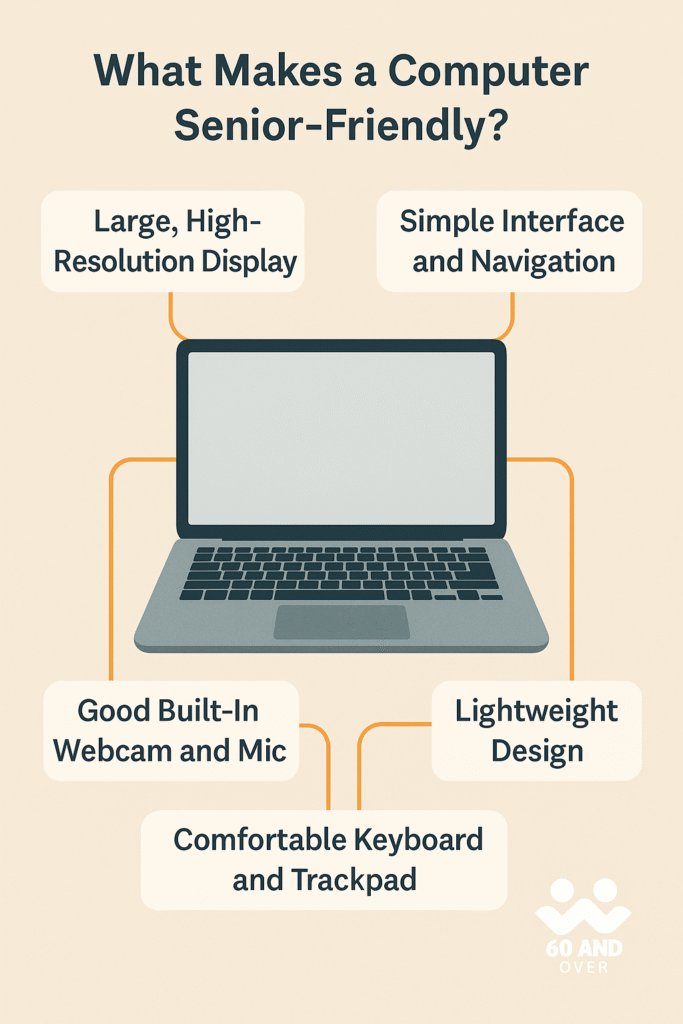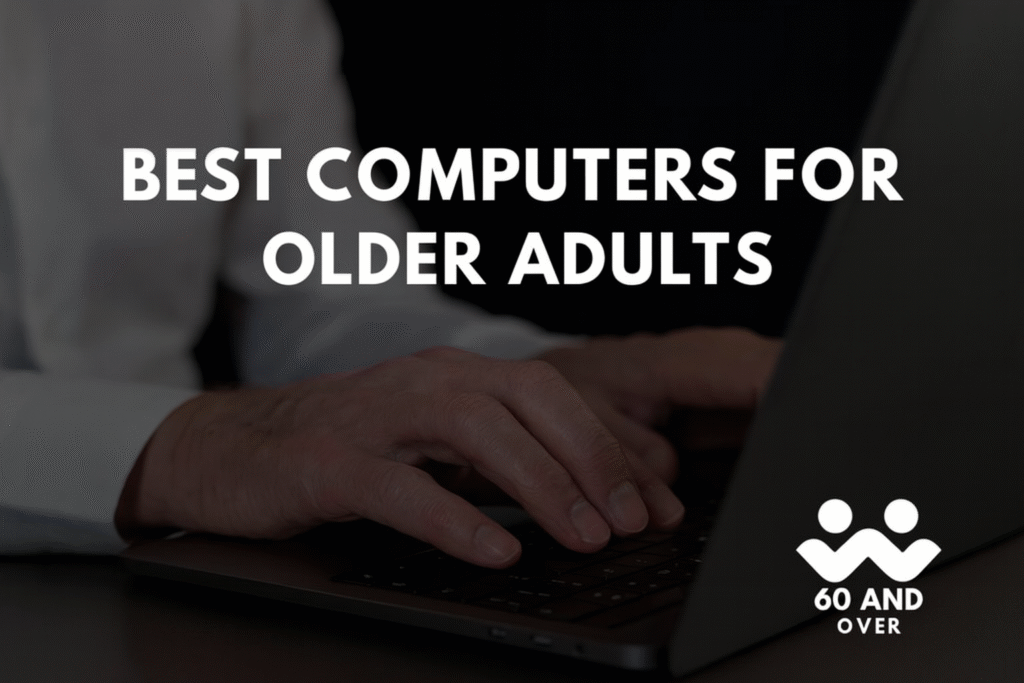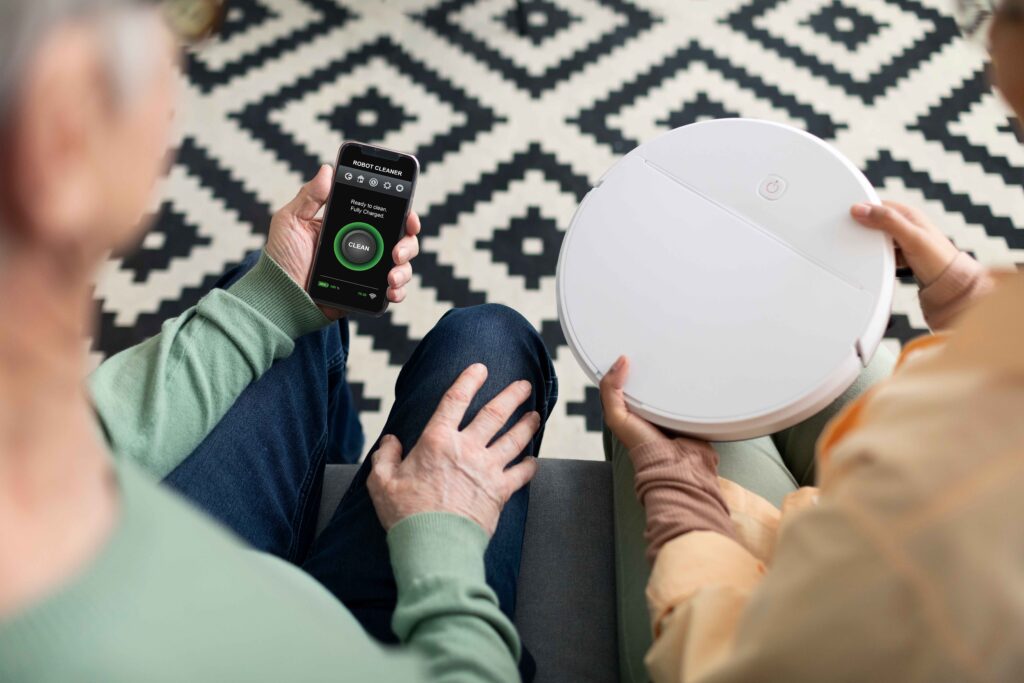For many older adults, the computer is more than a piece of technology — it’s a gateway to staying connected with family, exploring hobbies, handling finances, and even accessing healthcare services. But picking the right computer can feel overwhelming. With so many models, operating systems, and form factors, it’s easy to get lost in the jargon.
The good news? The best computer for seniors doesn’t need to be complex. It should focus on ease of use, readability, reliability, and affordability. This guide will walk through what matters most, compare options, highlight top recommendations, and help you match the right computer to your lifestyle.
What Makes a Computer Senior-Friendly?
Older adults typically value usability and comfort over raw power. Here are the essential features:
- Ease of Use: Simple navigation, clear menus, and straightforward apps.
- Readable Display: A bright screen with anti-glare and larger fonts improves accessibility.
- Comfortable Input Options: Full-sized keyboards, well-spaced keys, or touchscreen controls.
- Performance for Everyday Tasks: Enough memory and speed for video calls, streaming, email, and light productivity.
- Durability & Support: Solid construction and reliable customer support reduce stress.
- Affordability: Value matters more than cutting-edge specs.
To Make Computer Choice More Visual for You
“Why This Matters for Seniors”
Choosing the right computer after 60 isn’t just about speed or price. It’s about comfort, readability, and simplicity.
A senior-friendly device reduces frustration, supports independence, and makes video calls, email, and online shopping a breeze.

The Ultimate Senior-Friendly Mobile Device
After reviewing desktops, laptops, and tablets, one device stands out as the most balanced choice for older adults: the Apple iPad (11th Gen) with Magic Keyboard. It’s portable, easy to use, and powerful enough for everyday tasks like video calls, browsing, email, and entertainment. With Apple’s long-term support and intuitive design, the iPad remains the ultimate mobile computer for seniors in 2025.
Desktop vs. Laptop vs. Tablet: Which is Best?
Desktop Computers
- Pros: Large monitors, ergonomic setup, less strain on eyes and hands.
- Cons: Not portable, requires dedicated space.
- Best For: Seniors who use computers mainly at home and want a permanent setup.
Laptops
- Pros: Portable, versatile, and capable of everything a desktop can do.
- Cons: Smaller keyboard and screen unless paired with accessories.
- Best For: Seniors who want flexibility for travel or moving around the house.
Tablets & 2-in-1s
- Pros: Touch-friendly, lightweight, and simple.
- Cons: Less powerful for heavy tasks, smaller storage.
- Best For: Seniors who mainly browse, video chat, and read digital books.
Best Operating Systems for Seniors
- Windows 11 – Familiar, customizable, with accessibility features like enlarged text and voice typing.
- macOS (Apple) – Simple, reliable, and secure, with excellent FaceTime and photo tools.
- ChromeOS (Chromebooks) – Affordable, secure, and focused on internet-based tasks.
Top Recommendations: Best Computers for Older Adults in 2025
1. Apple iMac 24-inch (2025 Edition)
Large Retina display, simple macOS interface, and an all-in-one design make the iMac one of the most comfortable desktops for seniors. The big screen helps with vision, and Apple’s built-in apps like FaceTime and Photos are intuitive.
2. Acer Aspire 5 (Windows Laptop)
The Acer Aspire 5 strikes the right balance between affordability and performance. Its 15.6-inch Full HD display is sharp, and the keyboard is comfortable for longer typing sessions. It’s ideal for seniors who want a Windows laptop without overspending.
3. Microsoft Surface Laptop Go 3
Lightweight and portable, the Surface Laptop Go 3 combines touchscreen convenience with a traditional keyboard. It runs Windows 11, making it familiar to many users, and has enough performance for everyday tasks like video calls, email, and light browsing.
4. Apple iPad 10th Gen with Magic Keyboard
The iPad is the easiest computer for seniors who mostly browse, video chat, and read ebooks. The touchscreen interface feels natural, and the optional Magic Keyboard makes typing simple. Its portability is unmatched, making it great for seniors who don’t want a heavy device.
5. ASUS Chromebook Plus (2025)
Chromebooks are known for simplicity, and the ASUS Chromebook Plus is no exception. It’s lightweight, affordable, and built around Google apps like Gmail, Docs, and YouTube. It’s secure and perfect for seniors who mainly need a device for the internet, email, and streaming.
Scenarios: Matching Computers to Senior Needs
Computers aren’t one-size-fits-all. The right choice depends on how a senior plans to use it.
For those who primarily want to stay in touch with family through video calls, a device with a larger screen and reliable camera like the iMac or Surface Laptop Go 3 is ideal. Seniors focused on managing finances, organizing documents, or handling medical paperwork will appreciate the balance of security and comfort offered by the Acer Aspire 5 paired with an external monitor or printer.
For retirees who travel or move between households, portability becomes the top priority, and lightweight devices like the iPad with Magic Keyboard or Microsoft Surface Laptop Go stand out. Finally, seniors who enjoy games, streaming, or creative hobbies may gravitate toward a Chromebook for its simplicity or a desktop iMac for its larger screen and more immersive experience.
Essential Accessories for Seniors
Adding the right accessories can make a big difference in usability and comfort.
- Large-Print Keyboard for visibility.
- Wireless Mouse for easier navigation.
- External Monitor for bigger text and clearer images.
- Speakers or Headsets for clearer sound during video calls.
- Printer/Scanner for handling paperwork.
Accessibility Features Every Senior Should Try
Modern computers come with powerful accessibility tools that are often overlooked. Seniors should explore voice typing to replace manual input, magnifier and zoom settings to enlarge text, and high contrast modes for improved readability.
Screen readers help those with vision loss, while closed captioning features improve video and call clarity. Using these tools can transform the experience of technology into something far less intimidating and far more empowering.
FAQs About Computers for Seniors
Are Chromebooks good for seniors?
Yes. They are lightweight, affordable, and simple — perfect for seniors who only need the basics.
What is the easiest computer for a beginner?
An iPad with Magic Keyboard is often the easiest because it feels familiar to anyone who has used a smartphone.
How much should seniors spend on a computer?
Excellent options exist between $400 and $900. Apple devices often cost more, but provide longer support.
Is a bigger screen always better?
Generally, yes. A 15–24 inch screen improves readability, though portability may require smaller devices.
Conclusion
The best computer for older adults in 2025 ultimately comes down to lifestyle and comfort. Seniors who prefer a stable home setup will find the Apple iMac 24-inch particularly well suited thanks to its large display and simple design. Those working with tighter budgets or who value practicality may feel more comfortable with a Windows laptop like the Acer Aspire 5, which balances affordability with performance.
For individuals who enjoy portability or travel, lightweight devices such as the iPad with Magic Keyboard or the Microsoft Surface Laptop Go provide flexibility without sacrificing ease of use.
Meanwhile, seniors who primarily need a device for email, web browsing, and video calls will likely find a Chromebook to be the most straightforward choice.
What matters most is not chasing the most powerful specs, but choosing a computer that feels intuitive, reduces frustration, and fits seamlessly into everyday life. With the right match, older adults can stay connected, productive, and confident in their digital world.
Affiliate Disclaimer
As an Amazon Associate, we may earn from qualifying purchases. This does not affect the price you pay and helps us continue creating helpful guides for seniors.











